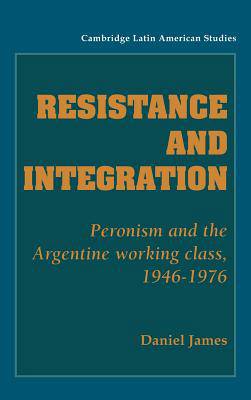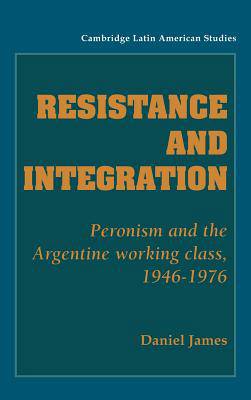
- Afhalen na 1 uur in een winkel met voorraad
- Gratis thuislevering in België vanaf € 30
- Ruim aanbod met 7 miljoen producten
- Afhalen na 1 uur in een winkel met voorraad
- Gratis thuislevering in België vanaf € 30
- Ruim aanbod met 7 miljoen producten
Zoeken
€ 172,95
+ 345 punten
Uitvoering
Omschrijving
This book analyzes the relationship between Peronism and the Argentine working class from the foundation of the Peronist movement in the mid 1940s to the overthrow of Peron's widow in 1976. It presents an account of such crucial issues as the role of the Peronist union bureaucracy and the impact of the Peronist ideology on workers. Drawing on a variety of untapped sources, Daniel James confronts many of the dominant myths that have surrounded the movement. He argues that its role in containing working-class militancy cannot be explained solely in terms of manipulation, corruption, or union gangsterism.
Specificaties
Betrokkenen
- Auteur(s):
- Uitgeverij:
Inhoud
- Aantal bladzijden:
- 312
- Taal:
- Engels
- Reeks:
- Reeksnummer:
- nr. 64
Eigenschappen
- Productcode (EAN):
- 9780521346351
- Verschijningsdatum:
- 29/04/1988
- Uitvoering:
- Hardcover
- Formaat:
- Genaaid
- Afmetingen:
- 152 mm x 229 mm
- Gewicht:
- 625 g

Alleen bij Standaard Boekhandel
+ 345 punten op je klantenkaart van Standaard Boekhandel
Beoordelingen
We publiceren alleen reviews die voldoen aan de voorwaarden voor reviews. Bekijk onze voorwaarden voor reviews.











